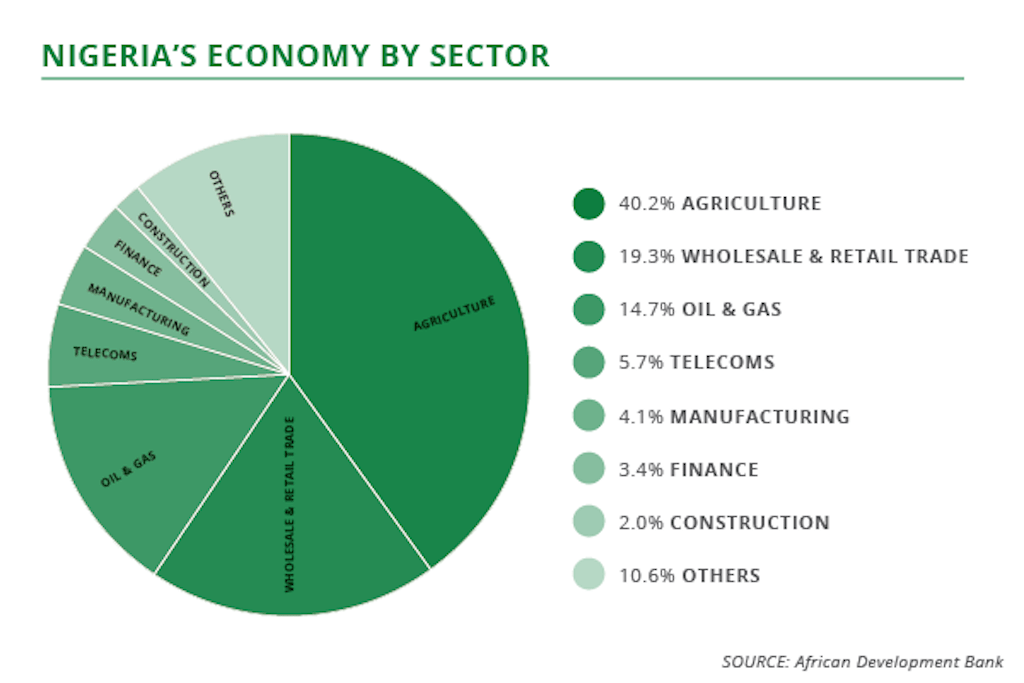
Nigeria, a prominent player in the global oil market and Africa’s largest economy, has recently been making headlines in its quest for economic diversification. A key driver of this shift is the realisation of its over-reliance on oil revenues, which makes it vulnerable to global oil price volatility, a fact underscored by the recent OPEC decision to cut oil production.
The Drive towards Diversification
The Nigerian government has recognised the importance of reducing the economy’s dependence on the oil sector. Economic diversification is not only essential for job creation but also to insulate the economy from global oil market shocks. The current drive towards diversification is focused on sectors like agriculture, manufacturing, and digital economy, offering Nigeria a way forward beyond its oil-rich soil.
Agriculture: A Promising Sector
Agriculture is one sector receiving particular attention, given its potential for job creation and food security. Initiatives to enhance agricultural output and productivity are on the rise, and the government is making significant investments in improving infrastructure, providing farmers with better access to credit, and enhancing agricultural research and development. The agricultural sector, which already contributes significantly to Nigeria’s GDP and employs a large percentage of the population, holds promise for both economic growth and poverty reduction.
Manufacturing: An Emerging Priority
Manufacturing is another sector poised for growth. With a vast population and a strategic location in Africa, Nigeria has the potential to become a regional hub for manufacturing. To tap into this potential, efforts are underway to improve the manufacturing environment, including addressing power supply issues, enhancing access to credit, and improving transport and logistics infrastructure. Developing the manufacturing sector could lead to substantial job creation, an increase in export revenues, and a reduction in dependence on oil.
Digital Economy: The Future of Growth
In addition to traditional sectors, the digital economy is an emerging area of focus for Nigeria’s diversification drive. As one of the fastest-growing tech hubs in Africa, Nigeria has seen a surge in tech startups, with significant domestic and international investments flowing into this sector. With an increasing number of internet users and a young, tech-savvy population, the digital economy could be a significant growth driver for Nigeria in the coming years.
Challenges on the Horizon
Despite the promise that diversification holds for Nigeria, the journey is fraught with challenges. Issues such as inadequate infrastructure, corruption, lack of access to credit, and an underdeveloped business environment are barriers that could impede the pace of diversification. However, recognising these challenges is the first step towards addressing them. The Nigerian government’s efforts to improve the business environment and investment in infrastructure development are positive steps towards overcoming these hurdles.
Conclusion
In conclusion, Nigeria’s current economic narrative is a tale of transformation driven by the necessity of diversification. The recent OPEC decision to cut oil production has further highlighted the urgent need for Nigeria to reduce its dependence on oil and diversify its economy. Despite the challenges, the prospects for diversification in sectors like agriculture, manufacturing, and the digital economy are promising. This shift could reshape Nigeria’s economic landscape, offering a more balanced, resilient, and inclusive growth trajectory. As the country navigates this transformative journey, the world watches, bearing witness to the reshaping of an economic giant.




